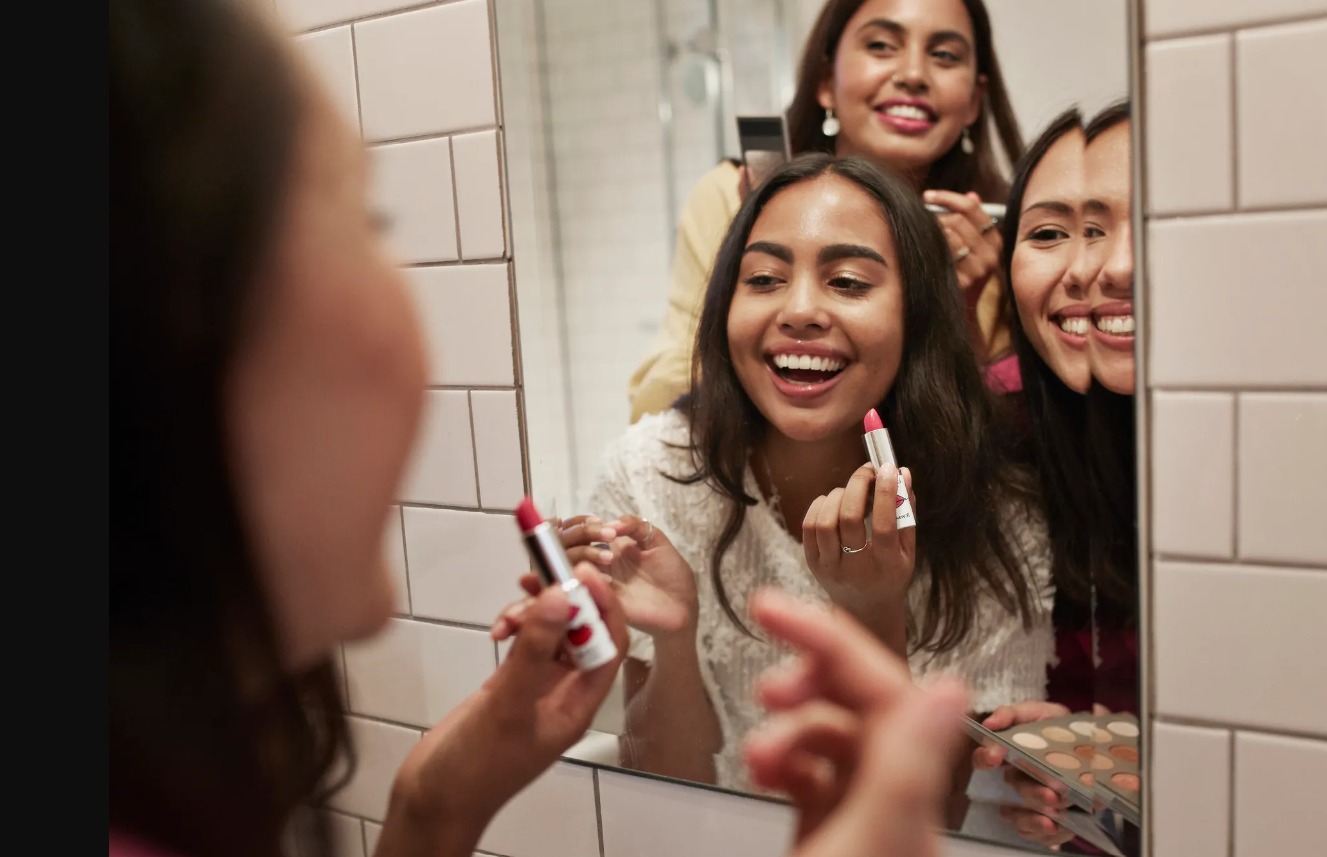Being attractive can open many doors and provide numerous advantages in life. People who are considered attractive often receive preferential treatment in various aspects of life, including in their careers, relationships, and social interactions.
Research has shown that attractive individuals are more likely to be hired for jobs, receive promotions, and earn higher salaries than their less attractive counterparts. In the realm of dating and relationships, attractive people tend to have more options and opportunities to meet potential partners. Additionally, being attractive can boost one’s self-confidence and self-esteem, leading to greater success and happiness in life. Overall, being attractive can be a powerful asset that can significantly impact one’s life in a positive way.

How Physical Appearance Influences Social Success
Physical appearance plays a significant role in determining one’s level of social success. People are naturally drawn to those who are physically attractive, often associating beauty with positive qualities such as intelligence, confidence, and success. Studies have shown that individuals who are considered attractive are more likely to be hired for jobs, receive promotions, and earn higher salaries compared to their less attractive counterparts. In social situations, attractive individuals are also more likely to be approached, befriended, and included in social activities.
This can lead to increased opportunities for networking, forming connections, and advancing in one’s career. On the other hand, individuals who do not conform to society’s standards of beauty may face discrimination, prejudice, and exclusion in various aspects of their lives. This can have a negative impact on their self-esteem, confidence, and overall social success. While physical appearance should not be the sole determinant of one’s worth or abilities, it is undeniable that it plays a significant role in shaping one’s social interactions and opportunities.
It is important for society to recognize and challenge the biases and stereotypes associated with physical appearance in order to create a more inclusive and equitable environment for all individuals, regardless of their looks. By promoting diversity, acceptance, and appreciation of different forms of beauty, we can create a more inclusive and supportive society where everyone has the opportunity to thrive and succeed.
The Impact of Beauty on Professional Opportunities
The impact of beauty on professional opportunities is undeniable. Studies have shown that individuals who are perceived as attractive are more likely to be hired for jobs and receive promotions than their less attractive counterparts. This phenomenon, known as the “beauty bias,” can be attributed to a variety of factors, such as societal norms and subconscious biases. In many industries, appearance plays a significant role in how individuals are perceived and treated by their colleagues and superiors.
This can create a disadvantage for those who do not fit conventional standards of beauty, leading to unequal opportunities for career advancement. While this may seem unfair, it is a reality that many individuals must navigate in the professional world. It is important for organizations to be aware of these biases and work towards creating a more inclusive and equitable workplace environment. Ultimately, the impact of beauty on professional opportunities highlights the need for greater diversity and acceptance in the workforce.

Perceptions of Competence and Likability Based on Looks
Perceptions of competence and likability based on looks are prevalent in society, whether we are aware of it or not. Studies have shown that individuals who possess certain physical attributes, such as symmetrical faces, clear skin, and well-groomed appearances, are often perceived as more competent and likable by others. These perceptions can have a significant impact on how individuals are treated in various social and professional settings. For example, those who are deemed as more attractive may be more likely to be hired for a job or receive a promotion, simply based on their appearance.
This can create a cycle of privilege for those who fit society’s standards of beauty, while those who do not may face discrimination or bias. Additionally, individuals who are perceived as less attractive may also struggle to be taken seriously or have their opinions valued, regardless of their actual competence or qualifications. This can lead to feelings of insecurity and low self-esteem, as individuals may internalize these negative perceptions and believe that their worth is tied to their physical appearance. It is important for society to recognize and challenge these biases, and to strive towards a more inclusive and equitable standard of evaluating individuals based on their abilities and character, rather than their looks.
The Role of Beauty in Personal Relationships
Beauty plays a significant role in personal relationships, as it often serves as a catalyst for attraction and connection between individuals. Physical beauty can initially draw people together, sparking interest and intrigue that can lead to the development of deeper emotional connections. However, beauty is not limited to physical appearances alone. Inner beauty, such as kindness, empathy, and compassion, also plays a crucial role in fostering strong and meaningful relationships. People are naturally drawn to those who possess qualities that make them feel good about themselves and the world around them.
When both physical and inner beauty are present in a relationship, it can create a harmonious balance that enhances communication, understanding, and overall satisfaction. Beauty can also influence how individuals perceive themselves and their partners within a relationship. Feeling attractive and appreciated can boost self-esteem and confidence, leading to a more positive and fulfilling connection with others. On the other hand, unrealistic beauty standards perpetuated by society can create feelings of inadequacy and insecurity, potentially damaging the dynamics of a relationship.
It is important for individuals to recognize and appreciate the unique beauty within themselves and their partners, fostering a sense of acceptance and love that transcends superficial appearances. Ultimately, beauty in personal relationships is a multifaceted concept that encompasses both physical and emotional aspects, playing a vital role in the formation and maintenance of strong and meaningful connections between individuals.

Addressing the Bias: Is Beauty Really a Benefit?
Beauty has long been considered a valuable asset in society, with many people believing that attractive individuals have an easier time in life. However, this belief can lead to bias and discrimination against those who do not fit traditional beauty standards. This bias can have negative effects on individuals’ self-esteem and mental health, as they may feel inadequate or unworthy because of their appearance.
Additionally, this bias can also perpetuate harmful stereotypes and perpetuate inequality in various aspects of life, such as in the workplace or in relationships. It is important for society to address and challenge these biases, as beauty should not be the determining factor in someone’s worth or success. Instead, individuals should be judged on their character, skills, and contributions to society, rather than their physical appearance.
By promoting inclusivity and valuing diversity, we can create a more equitable and accepting society where everyone is treated with respect and dignity, regardless of their outward appearance. Beauty may have its advantages, but it should not be the sole measure of a person’s value or potential. It is time to shift our mindset and recognize that true beauty lies in the uniqueness and individuality of each person, rather than conforming to narrow standards of attractiveness.
